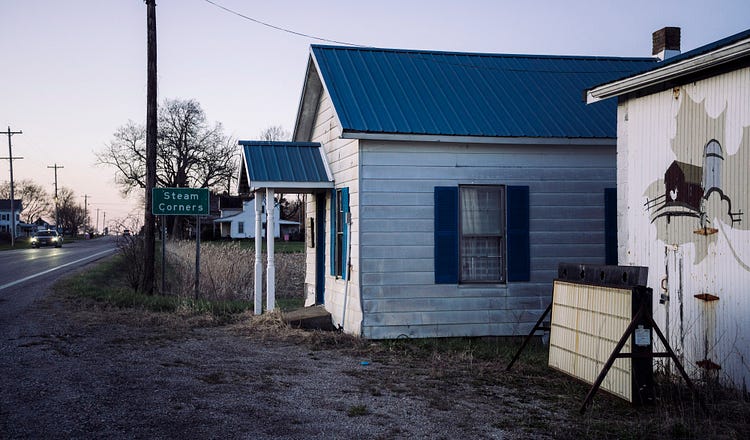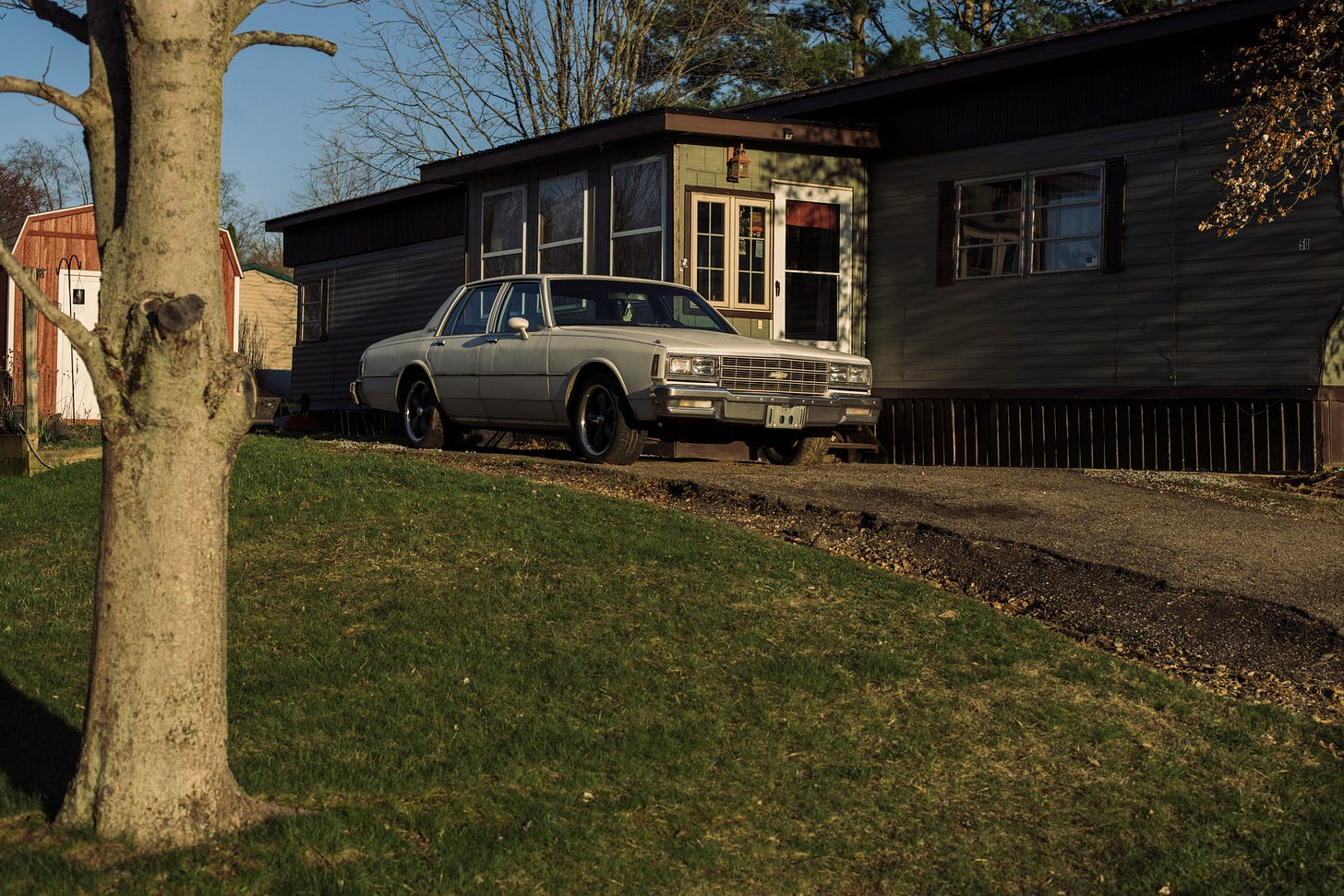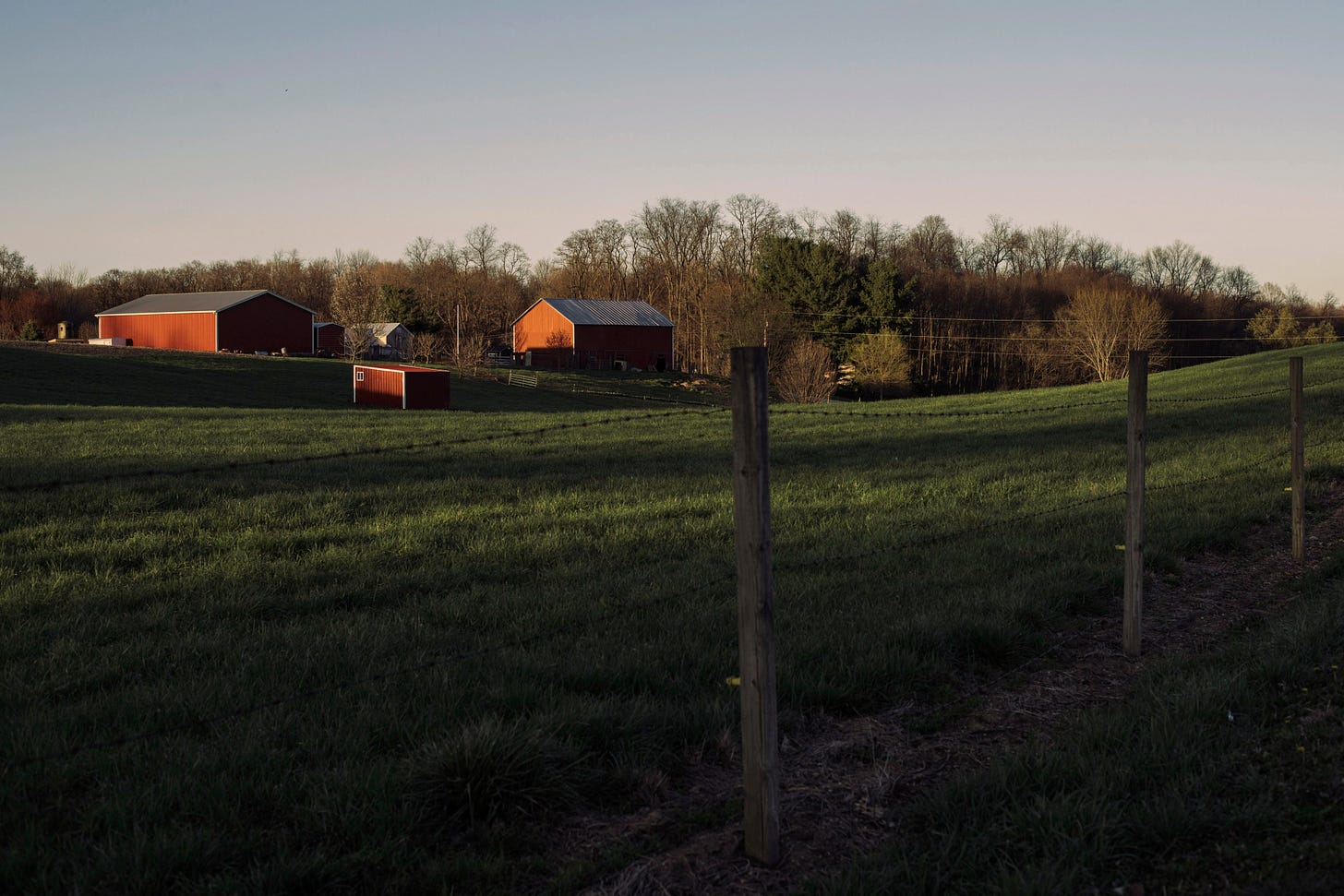
The Free Press

TROY, Ohio—“Chickens get thirsty. Agriculture is the priority around here.” The presiding trustee of our township was breaking some hard news to the handsome young couple in front of him.
“Drill a new well. What’s next?”
Dressed in matchy-match nylon athleisure, they were too astonished to respond. This was not the conversation they’d imagined 12 hours before when they’d awoken to find the taps and showers in their brand-new home dry yet again. Or when they’d driven to the township hall, parked their Subaru Ascent among a gaggle of ragged and rusty pickups, picked their way down rickety stairs into a basement dug shortly after the Civil War, and demanded action! The couple had spent seven figures to build a home on a previously vacant farm lot, but the long barns on the next property contained a fully functional egg farm. Shortly after moving in, their new—and shallow—well ran dry. They wanted the egg farm shut down.
Instead, they’d been dismissed out of hand, with no possibility of appeal, by a man with grease-stained hands and an embroidered work shirt who had just come from his day job as a diesel-truck mechanic.
What gave this mechanic the right? Well, Troy, Morrow County, Ohio, is a township, which means the entire government consists of four men in canvas work pants.
I was seated just a few folding chairs away—and had to stifle a laugh. I was born in New York City, but became a suburbanite at age 13. Then, in 2022, my wife and I moved to this corner of rural Ohio. We are both amateur car racers and wanted room to operate an eight-person, five-car team. But we were immediately fascinated by our new home’s streamlined form of government. We resolved never to miss a township trustee meeting.

In an era where everything from congressional hearings to local school board meetings has become stained and strained by relentless partisanship, ideological fanaticism, or mere personal animus, it’s refreshing to hear normal people discuss normal problems with the primary goal of getting something done. We have no time to discuss gender politics or the plight of the Palestinians. There are local, pressing matters to address, like whether the Road Department is equipped with salt ahead of winter, and just an hour or so per month allotted to get together and figure them out.
Every Ohioan is nominally the resident of a township, following a map laid out around 1848, but for most of them the governing functions originally handled there have been superseded by village or city authority. Not so in the most rural parts of the state, like our township, located halfway between Columbus and Cleveland in the middle of what would otherwise primarily be known as a tornado alley.
We have no cities nor villages in a space of land that is about two-thirds the size of Manhattan, but with less than one thousandth of Manhattan’s population of 1.6 million. My wife and I live with a feral cat colony on a plot that would hold the entire Museum of Natural History, plus its surrounding block.
And then there’s this: New York City’s annual budget is $111.6 billion and there are 306,248 people on its payroll. My township has a budget in the low six figures and one full-time employee, who performs ad hoc road repair, digs culverts, and drags the occasional fallen tree out of everyone’s way. Our three elected officials and one secretary are paid a little above minimum wage to appear at a monthly meeting in a 150-year-old white clapboard building. Arguably, these constraints are what make the system work so well.
Sometimes my wife and I are the only citizens who attend to watch the passing of various resolutions: against marijuana dispensaries, for a bit of road repair. Serious discussions are held regarding the merits of replacing a single road sign. The local 4-H club cleans the township hall, which is also where we all vote, and picks up roadside trash, so periodically the board votes to give them a $50 subsidy for trash bags.
We have the occasional troublemakers, like the fellow who allowed a few dozen wrecked cars to accumulate at the roadside. It’s expensive to deal with that, and there’s never enough budget, so the trustees have to determine: Do they repair a dangerously potholed road this year, or do they spend what it takes to execute a property lien and enforce a cleanup? You can’t have both, and you can’t use a single dollar more than you can extract from 1,100 middle-income residents and a few external subsidies.
We have no manufacturing, no warehouses, no major employers, and no commercial building larger than the Dollar General.
What we do have, and what seems to be in short supply elsewhere, is a sense of community and accountability. You need both. At one meeting, when a homeowner complained that his road had too much loose gravel, someone laconically commented, “Well, you sure like to spin the back wheels of your truck in that gravel, driving fast,” and there was a general nodding of heads. When another ambitious young couple claimed a zoning and tax exemption for an expensive new barn, indicating that it was for goats, their neighbors were quick to note that it seemed instead to be constructed for the purpose of holding weddings.
This suspicion was duly confirmed when a trustee in his early eighties found a Facebook page advertising the space to brides for next summer. If the couple had hoped for some sympathy among their neighbors, their hopes were in vain. No one admires tax-dodging when the tax in question pays to fix a two-mile-long road with just 20 or 30 houses along it. Here, in the reddest part of a traditionally red state, anti-government posturing is unwelcome. There’s no “us” and “them,” by which I mean a class of health inspectors, bureaucrats, urban developers, and project managers. There’s just us, governing and governed alike.
Our township has multimillion-dollar homes and trailer parks. I wave from my F-250 to my neighbor in his Rivian EV. There are no gated communities, but you’d be unwise to walk down someone’s driveway without an invitation. You see the same faces day in, day out. The nights are so quiet you can hear voices a quarter-mile away, and we are canopied by bright stars that I’d never seen or known in my first 50 years on this earth.

Yes, it’s flyover country out here—but it’s also 18 minutes from two steakhouses and three home-improvement stores. No surprise, then, that the population growth in Ohio’s townships is outstripping that of its cities and almost keeping pace with the suburbs. Several of my neighbors are “laptop class” types who, having made the move to remote work, were eager to escape the homeowners’ associations. Then they got here and discovered the subtle pleasures: raising an animal or two, riding a horse, driving a tractor. There’s a real joy to be had in owning a thousand trees and 50 rooftop solar panels. It makes you feel carbon neutral and then some. And seeing your government actually do work on your behalf makes it feel like the in-fighting and meltdowns that happen on the news are happening in a far-off country. In many ways, it is.
My wife, from her Adirondack chair on a summer afternoon last year, mused that she didn’t think she could ever go back to hearing sirens and trucks and car stereos all day. I knew what she meant.
As do our new friends in their fancy vests and shiny Subaru.
Faced with the idea of selling out and going back home, they did the obvious thing: dug a well hundreds of feet down, past the shallow aquifers that feed the chickens and water the cornfields, into the bedrock of prehistory. A well that won’t drain in their lifetimes, or the ones to come.
The expense doesn’t bear thinking about, unless you think of it as what it is: putting down roots.
We know our readers have lots of thoughtful, engaging ideas, and we want to hear them! If this story, or any others you’ve read on The Free Press, have changed your mind, sparked an interesting conversation, or even angered you, please write to letters@thefp.com.




